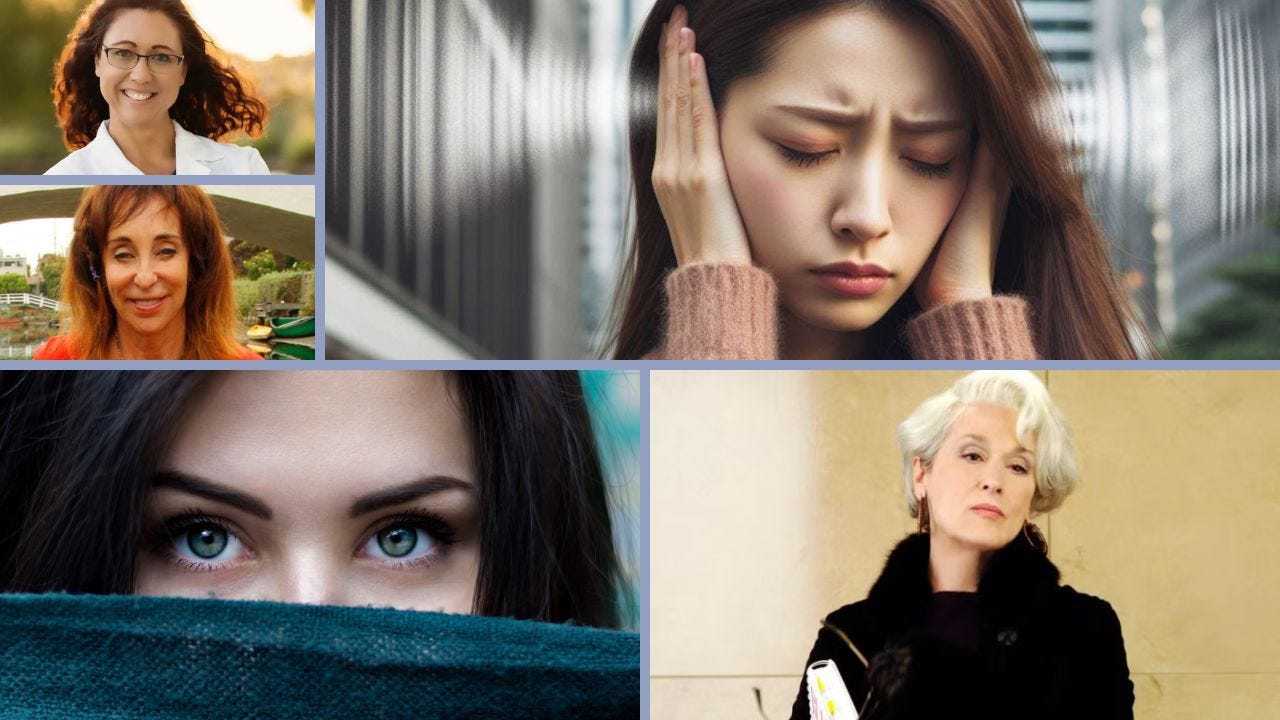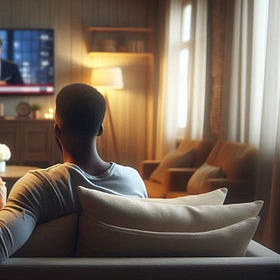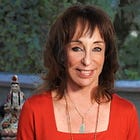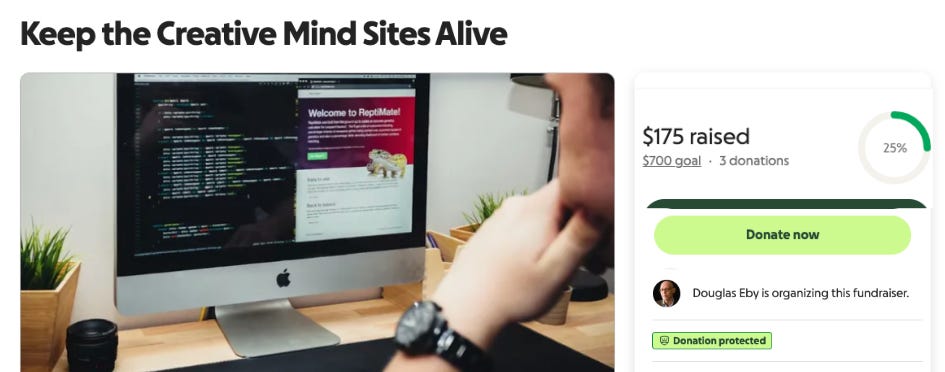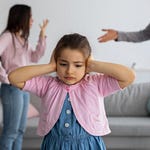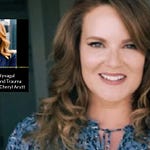Empaths and highly sensitive people "aren't just open to trauma. They're open to everything, and it can feel traumatic when you're young and don't have any guidance." - Dr. Judith Orloff
"Our nervous system is picking up more information, receiving information that others don't, feeling things that others don't, which means sometimes having an uncontrollable body response to imperceptible changes in the environment." - Dr Aimie Apigian
Therapist Julie Bjelland, LMFT: “While this sensitivity can feel overwhelming, it’s important to recognize it as a natural part of how your brain works—not a flaw.”
~~~~
This audio is an excerpt from the biology of trauma podcast (episode #102 Strategies for Empaths: How to Navigate Sensory Overload, Shame & Trauma), with trauma recovery physician Aimie Apigian talking with empathic psychiatrist Judith Orloff about some of the many aspects of being exceptionally responsive to emotions and sensory information for those of us who have a highly sensitive nervous system.
Dr. Aimie Apigian, MD, MS, MPH, is an author, speaker and founder of Trauma Healing Accelerated.
» Trauma recovery program by Dr Apigian: TheFoundational Journey for addressing stored trauma in the body.
More of her resources:
📖 The Essential Sequence - How to Release Stored Trauma - free guide.
📖 Attachment Pain Guide for Healing - free guide.
~~~~
Dr Judith Orloff says "I love being an empath. Yes, it has its challenges but so what? Everything has its different challenges."
She adds that being highly sensitive, "You get to feel everything. I get to feel the flowers, feel nature, I get to feel deep love and connection with people.
“I get to be in touch with the mystery and you know the the gorgeousness of Life on such a deep level."
Escaping an angry, bullying, bossy person
In the podcast excerpt above, Dr Orloff recalls she was "in a situation recently with a group and this woman was trying to make a point and she got very authoritarian and loud and bullying and bossy.
"It was on a zoom call and I was supposed to be part of this meeting and I'm feeling, This isn't acceptable to me, and so I just told everyone have to leave."
[The image at lower right is a reference to a movie character like this: Miranda (Meryl Streep) in The Devil Wears Prada (2006).]
Self care and setting boundaries
Dr Orloff refers to self-care and emotional safety strategies, including setting boundaries.
"You want to find the triggers for your trauma and gently and sensitively deal with them, so you can take care of yourself. Self-care is so essential."
~~~
Dr. Orloff notes: "As a psychiatrist, I've worked with many empaths and sensitive people over the years.
“What I've seen is that they are especially vulnerable to becoming burned out from toxic relationships."
She adds, "These relationships can make you feel anxious, depressed, tired, and ill.”
⏩ Free webinar Being an Empath Today - Surviving and thriving with the gifts of sensitivity.
⏩ Understanding Narcissism Summit: "A Program to Empower Yourself in Relationships, Heal the Trauma of Narcissistic Abuse, and Shift Our Culture from “Me” to “We”... Dr Orloff's presentation: "The Toxic Attraction Between Empaths and Narcissists."
⏩ The Empath’s Survival Guide Online Course: Life Strategies for Sensitive People.
Psychiatrist and empath Judith Orloff, MD "shares an overview of the total experience of being an empath, both the blessings and the struggles. She then offers solutions to address the most common challenges so that empaths can become empowered in an often-hostile world."
~~~~
Sensory Overload can lead to anxiety, fatigue. How to renew energy and calm?
As various researchers and therapists note, being a highly sensitive person or another form of neurodivergent, with different "neurological wiring," we can experience many positive qualities, such a greater appreciation of beauty and art, a heightened awareness of subtleties, emotional depth, stronger empathy, and more.
Therapist Julie Bjelland, LMFT: “While this sensitivity can feel overwhelming, it’s important to recognize it as a natural part of how your brain works—not a flaw.”
But she cautions, "Watching news visually can cause a lot more anxiety than reading it for most highly sensitive people. Take breaks from reading or watching the news."
Follow link above to post with audio excerpt from one of her free classes: Sensory Overload & Sensitivity.
~~~~
More related posts/podcasts
Dr Orloff also refers to a spectrum of abuse and childhood experiences impacting empaths and highly sensitive people.
One of my posts on adverse childhood experiences:
As Dr Orloff relates, being an adult and having to deal with a bully can be emotionally challenging.
Here is a related post:
Actor Millie Bobby Brown of Stranger Things:
Writer Emily Zemler comments: “Over the years, Millie has struggled to understand why being herself generates so much vitriol.
“It’s really hard to be hated on when you don’t know who you are yet,” she says.
Psychotherapist Mihaela Ivan Holtz helps creative people in TV/Film, performing and fine arts. She notes in an article of hers: “Many highly creative people have been bullied as kids... Perhaps you loved singing, writing poems, dancing, making fashion, or being innovative in other ways as a child.
"Though these aspirations brought you joy, they also made you the target of bullies who made fun of, mocked, or ridiculed you."
See more in the post, including comments by Robert Pattinson, Jameela Jamil, Donna Jackson Nakazawa.
~~~
Setting boundaries
The image at lower left (woman behind cloth) is from my post (on the Highly Sensitive site) How Can We Set Healthy Boundaries as a Highly Sensitive Person? It includes podcast episode by Sensitivity expert Julie Bjelland, LMFT.
Also see her related class “How to Set Healthy Boundaries and Why it’s Essential for Wellness as an HSP" in list of Free Classes for Highly Sensitive People.
~~~
The image at upper right (young woman feeling stressed from noise - AI image - DALL*E/Bing) is from my Substack post/podcast:
~~~~
Thanks for reading/listening. As with most of my posts here, the topics are of deep personal interest, and I will probably, over time, add more content.
~~~
Do you enjoy and benefit from my posts, podcast episodes, videos and more?
As a writer and content entrepreneur, I love researching, creating and publishing material here, and on other Creative Mind Sites, that can help creative people learn more and thrive more.
But creating and publishing is only free in some ways.
Consider supporting my work with a donation to help with costs.
One key tool is my desktop computer. (The image is for illustration, it is not mine and that is not me.) Your donation would help pay for a recent upgrade to a newer (still old, from 2017, but refurbished) iMac, which enables my ongoing work.
Other costs include hosting fees (over $120/mo) of my 7 personal sites, and other expenses including a podcast platform, video editor, digital production apps, and more.
I want to keep my sites uncluttered with ads. One of my sources of income is occasional commissions from promoting programs by therapists and teachers, but that income has dropped drastically.
Thanks for considering a donation to help. Much appreciated. author Douglas Eby
~~~



